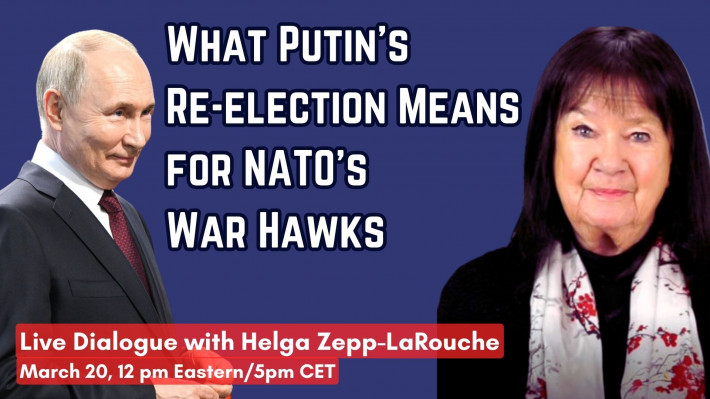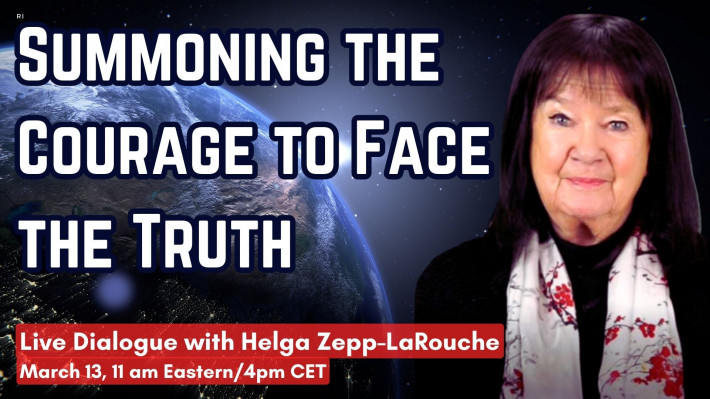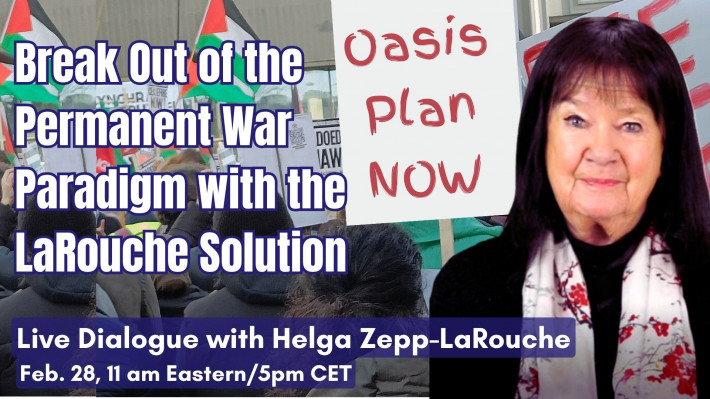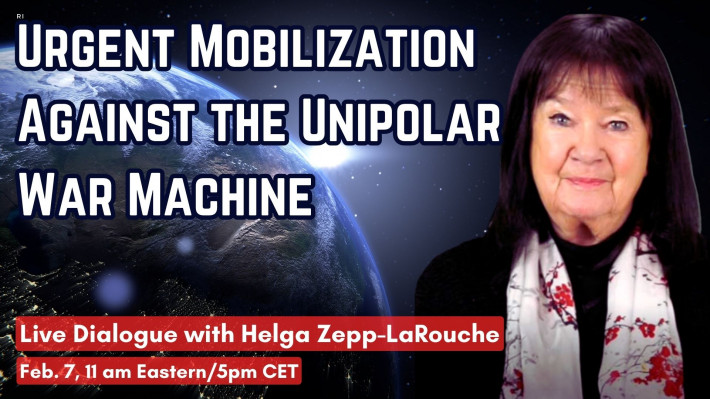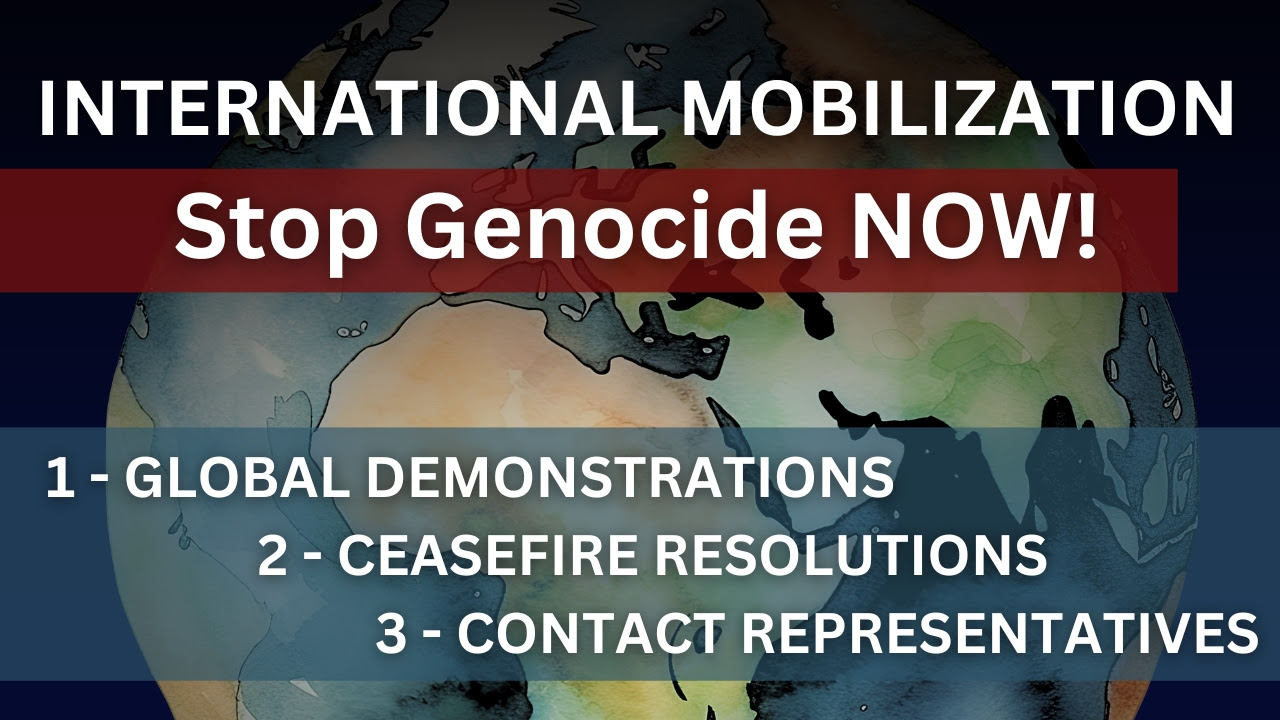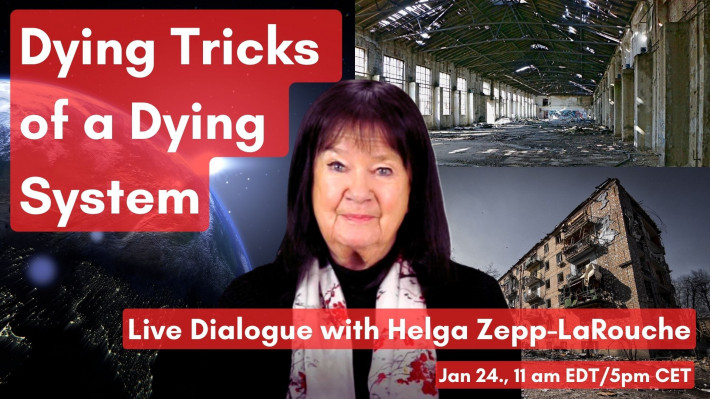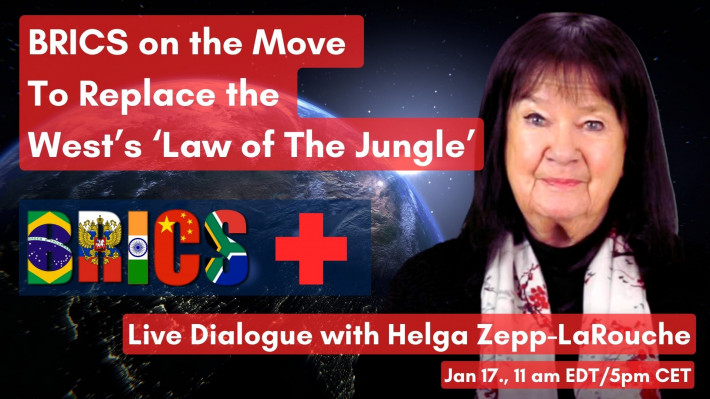Join Helga Zepp-LaRouche in her Weekly Live dialogue March 20, 12pm Eastern/4pm CET and help usher in the Year of the New Paradigm for all Humanity. Send your questions, thoughts and reports to questions@schillerinstitue.com or ask them in the live stream.
What Putin’s Re-election Means for NATO’s War Hawks
Look at Vladimir Putin’s re-election in Russia. Contrary to most of what was written in trans-Atlantic nations, it was not only fair, and an accurate reflection of what Western pollsters have themselves consistently recorded about Putin’s popularity. It was also a referendum on the war against Russia, which Russians knew, or came to realize, was being run by NATO, and not by Ukraine. Further, that “Ukraine” war, is a war into which Ukraine itself was seduced, even if largely willingly, not by Russia, but by NATO. (Britain’s Boris Johnson’s notorious role in destroying the 2022 peace negotiations is well-known.) The war was intended as a violent intervention into the Russian electoral process, was provoked two years earlier than that election, and included a “financial nuclear war” in the form of sanctions, and the de facto expropriation of $300 billion in Russian holdings. There were unsuccessful attempts to provoke a violent coup in the streets. There were even drone-attack military assaults on Russia, and the Kremlin itself, possibly involving NATO capabilities, reminiscent of the attacks on the Pentagon on September 11, 2001.
And what was the result? The result was “incommensurable” with what NATO intended, in every way. The Russian economy is stronger than before; sectors of Ukraine have voted to join the nation of Russia; and Vladimir Putin will be President of that nation for six more years, if not longer, with a degree of support not enjoyed by any politician anywhere in the trans-Atlantic “NATO” sector for decades. Russia also now enjoys immense popularity among the nations of the Global Majority, particularly the African nations, because it has not only survived, but advanced. When NATO forces attempted to recruit nations from the Global South/Global Majority to denounce the Russian electoral results, they were able to convince, essentially, no one.
In remarks to reporters last night, following confirmation of his election victory, Russian President Vladimir Putin warned that a direct conflict between Russia and the U.S.-led NATO military alliance would mean the planet was one step away from World War Three, a scenario hardly anybody wants. Putin was responding to a question from Reuters, regarding French President Emmanuel Macron’s Feb. 26 comments about not ruling out the deployment of NATO ground troops in Ukraine in the future. In response, Putin said: “Everything is possible in the modern world.”
“It is clear to everyone, that this will be one step away from a full-scale World War Three. I think hardly anyone is interested in this,” Putin said further. He added, though, that NATO military personnel were present already in Ukraine, saying that Russia had picked up both English and French being spoken on the battlefield. “There is nothing good in this, first of all for them, because they are dying there and in large numbers,” he said.
What should this teach intelligent people in “NATO world?” Some have asked, does the Wall Street/London axis have a Plan B? Is there another faction that may come to power that realizes that their “Project Democracy” show has closed? Are there any signs of intelligent life among the governments and governing factions of the failed states of the NATO alliance? Can anyone any longer think outside of the boundary conditions of their intellectual “Flatland?” The “Ten Principles” of Helga Zepp-LaRouche, and the LaRouche Oasis Plan, a policy-application of the Ten Principles, are the essential “intelligence test” of the moment, for those in the trans-Atlantic that would want to know how to grow the “mind power” that might yet allow them to survive the hereditary stupidity of their failed, and failing axioms.
Join Helga Zepp-LaRouche in her Weekly Live dialogue March 20, 12pm Eastern/4pm CET and help usher in the Year of the New Paradigm for all Humanity. Send your questions, thoughts and reports to questions@schillerinstitue.com or ask them in the live stream.








